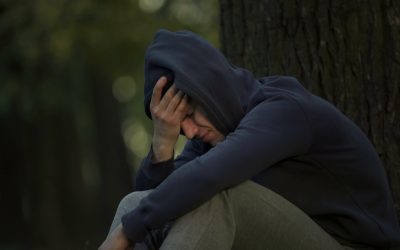- Precisando de ajuda?
- (11) 91548-7043
- wbrand@wbrand.com.br
Planning a Vacation in Recovery: Dos and Donts
These are the people you can feel safe choosing as your traveling companions. However, you might need them to be extra vigilant while you are on vacation. For instance, you need to be sure that they won’t bring alcohol or drugs to your hotel room, where you’ll be tempted to use them. Holiday travel is among the hallmarks of the season when we can carve out time to connect with loved ones and enjoy festive traditions.
Social Anxiety
- Beach sober meetups happen regularly during the summer months.
- One of the first things that we learn in recovery is that we never have to be alone again.
- New Jersey sits between major metropolitan areas like New York City and Philadelphia, making it easily accessible for quick escapes.
- You’re stepping into a new chapter where joy isn’t conditional on intoxication and rest doesn’t mean running away.
Being away from home or in an environment where you’re surrounded by people who don’t speak your language can be intimidating. Some drugs lower inhibitions, giving you the courage to ask strangers for recommendations, make requests to improve your trip and make friends. However, being in recovery doesn’t mean you can’t enjoy well-earned vacations at your desired destination. Vacations offer the chance to relax, explore, and create cherished memories. However, for those in recovery, these trips can present unique challenges. While the allure of beachside cocktails or wine at Oxford House dinner might seem appealing, staying committed to sobriety is crucial.
Sober Vacations and Cruises: Benefits of Traveling Substance-Free
One such app is Loosid, which offers a range of features including chat groups, a sober dating platform, and access to six hotlines available 24/7 for immediate support during challenging moments. The app serves as a convenient resource for addressing urges, handling difficult days, and providing advice for various stages of recovery. When embarking on a sober vacation, it’s important to have strategies in place to avoid temptations and stay on track with your sobriety goals. Here are three helpful tips to help you navigate your vacation with confidence and resilience. Instead of centering vacation experiences around nightclubs and hotel bars, individuals can focus on exploring the wonders of travel.
Using Mindfulness Techniques to Stay Grounded and Enjoy Your Trip
- For example, what crowd usually frequents the hotel you’ve booked?
- Yes, there are clubs and casinos, but on the whole, abstaining from alcohol is relatively easy in Malaysia; enjoy the local cuisine instead.
Regardless of the stage of recovery you’re in, certain situations can present some challenges – such as planning a vacation. While many greet the warm summer months with open arms, it can be a difficult time for those in recovery. With 19 years of experience, Ben Pearson specializes in adolescent and family therapy, de-escalation, and high-risk interventions. As a former Clinical Director of an intensive outpatient program, he played a key role in clinical interventions and group therapy. With 15+ years in wilderness treatment and over a decade as a clinician, Ben has helped countless individuals and families navigate mental health and recovery challenges.

By taking care of these details, they alleviate stress and allow individuals to focus on their recovery without the added burden of managing travel logistics. This support ensures a smoother and more enjoyable travel experience. Additionally, it may be helpful to discuss and agree upon activities that are alcohol-free or supportive of your sobriety. This communication can help ensure that everyone is on the same page and that your travel companions understand and respect your boundaries. By setting these boundaries, you can create a supportive environment that encourages your sobriety and minimizes potential triggers. Focus on this joy when cravings hit or the temptation to use increases.
What are Some Tips for Traveling in Early Sobriety?

Think about possible triggers that may arise during your vacation. Crossword puzzles, a page-turner of a book, adult coloring books, listing to music, and guided meditations are some useful tools many people in recovery find helpful. It is also important to remember that your support network is just a phone call or text away. Recovery isn’t just about staying sober; it’s also about feeling connected, accepted, and understood. A strong recovery community can make a major difference in how supported you feel each day. Being around others who understand your struggles and growth can help you stay motivated and grounded.

Seagulls soared above us as I felt mists of the Atlantic Ocean hitting my pale body that desperately needed tanning. The Monkey came along uninvited of course, but I enjoyed drowning him in the water and burying him deep in the sand. Oh but, I almost forgot to mention, I was also celebrating my anniversary of eight months in recovery. Suboxone should not be taken by individuals who have been shown to be hypersensitive to buprenorphine or naloxone as serious adverse reactions, including anaphylactic shock, have been reported. vacationing in recovery Taking Suboxone (buprenorphine/naloxone) with other opioid medicines, benzodiazepines, alcohol, or other central nervous system depressants can cause breathing problems that can lead to coma and death. Other side effects may include headaches, nausea, vomiting, constipation, insomnia, pain, increased sweating, sleepiness, dizziness, coordination problems, physical dependence or abuse, and liver problems.
And fortunately, the Philadelphia area is conveniently located between a number of major metropolitan areas, shore towns, and outdoor destinations that make it simple to stay busy on vacation. Read on to learn some healthy tips to keep you and your recovery on track during your next summer vacation. One effective way to stay on track with sobriety while on vacation is to connect with local recovery groups in the destination you are visiting. These groups can provide support, accountability, and a sense of community for individuals aiming to maintain sobriety while away from home.
